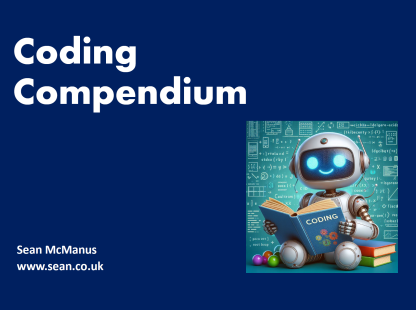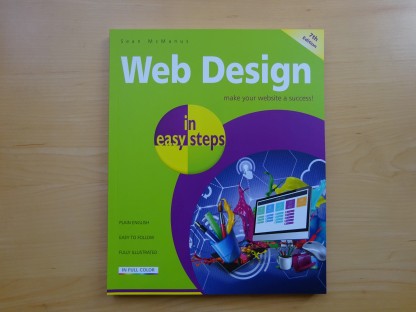
Coding Compendium
A free 100-page ebook collecting my projects and tutorials for Raspberry Pi, micro:bit, Scratch and Python. Simply join my newsletter to download it.
Internet Magazine, December 2002
Throughout the nineties, Jake Shillingford was the singer-songwriter for Top-40 band My Life Story. For his new project, he's built an online community which is financing his record label and building the trust he thinks will defeat music piracy. Sean McManus meets him.
While many artists and record labels are running scared from the web, Jake Shillingford sees it as essential to his survival. "It's cut and thrust now," he says. "If you don't get in the top 20, you're looking at being dropped by a major label."
His solution for new band ExileInside: build your own online record label, ask the fans to invest in it and use the web to sell the CDs (www.exileinside.com).
"I know it sounds almost defeatist but my ambition is to be a musician and earn the national average wage for the next five years," he says. "My ambition before was to be a huge pop star and earn millions. But only 1% of musicians make millions and all the others make nothing. This project hopefully redresses the balance."

Press shot of Jake Shillingford
You claim Exileinside is the first real band of the internet era. What do you mean?
Unlike others groups that have attempted this way of selling their product, we are a new group. Although I have great admiration for bands like Marillion and Dodgy, I think the press looked at it with a raised eyebrow because they felt it was more of a way to get the bands back in the spotlight as opposed to a genuine way to try to survive and sell records away from the industry.
You say it's a new band, but isn't your previous band My Life Story partly responsible for your success?
My Life Story did have a cult following, but our first gig with ExileInside was first on at the Monarch, an entry level London circuit venue. I wanted to start from the beginning. Some investors hadn't even heard of My Life Story. I told people at a seminar for new bands that the people who invest in ExileInside through My Life Story are no different to new bands getting their parents, friends or family to help.
How have you gone about creating a community online?
We have this collection of alpha members, in a cheeky nod towards The Prisoner. It started off as a bit of a joke but everyone loves it. Anyone who helped us out on any level, from sleeve artwork to giving us a lift to a gig, would be given a number as a reward for helping us, like The Prisoner.
What about the investors?
Our idea was to create an entire functioning record label out of our friends and fans. We have 21 investors and we've raised £11,500. The reason we went for a £500 minimum investment is we felt we didn't want to have hundreds of people investing 10 pounds each and the whole thing getting out of hand. That's what I mean by the community aspect: we actually wanted to have a small community of people. We currently have 21 investors which is a manageable number.
And your site has a messageboard...
It's absolutely essential for band members to get involved, to set the record straight on a few issues and to show they're active in the day-to-day runnings of the band. Somebody who's in the top 40 right now has taken down his messageboard because he's fed up with people leaving negative comments. If you ban that, they're only going to do it on another site anyway so you might as well have a completely free speaking messageboard. If somebody does say something out of line, within seconds there will be people that are trying to correct him.
Have you had any negative feedback on the site?
We've had people saying they ordered our EP and didn't like it and gave their reasons. What's wrong with that? You're going to read negative comments like that in the NME or in Q magazine. The internet's no different to hard copy.
How are you reacting to feedback?
Fans usually know what's what. One thing we'll certainly do a lot more in future is ask people on the site to vote for their favourite tracks, the direction of the band and things like that. I'm quite happy to do that, although there's a point where you have to take control and be the artist. I'm not going to say 'the next album's going to be a skiffle album, sod you lot!'
How does the website link to the real world?
The whole idea of creating a community from the internet is that it can't be purely virtual. It's really important to have tangible things around it. When we're not gigging we run a regular club so that investors can come and meet and discuss the band and we play our favourite records at that club as well. It's really getting a feel of what the band's about and our musical vision as well as our business vision.
I understand you built the website yourself...
I used Adobe GoLive 5. You need to be internet savvy to be in a band now. It's your one and only chance to control the output of your work. The website has grown with the progress of the band and now the band is slightly outgrowing the website, which is really important. A lot of groups spend thousands of pounds on a website that's really flashy and people can't get the information. Selling records online is a business. Your site cannot be a designer's shockwave portfolio.
You also used the internet to collaborate with co-songwriter Aaron Cahill on writing the album...
There's been a lot of talk of people creating music over the internet but the lyrical side of it I found was really interesting. I would send him an immediate thought and then he would edit it so it would work in one of the songs and I would do the same to him. We were almost working as editors for each other's work. This record deals with complicated topics about the human condition, but it's concise and clear as a result.
How does the web help you reach international markets?
I thought, let's try to make this as international as we can. With a project like this you're not going to sell thousands of records in one country. You're looking at a couple of hundred in France and Germany, maybe a thousand in Japan and a couple of thousand in America. All those figures will add up and you'll hopefully be able to earn a modest living. Certainly for the FAQ and introduction section, I thought it was important to have different language versions. There have been lots of fans who have been more than happy to translate for us.
If you were signed to a major label there's no way they would be thinking along those lines.
And you've translated some of the songs too...
In France 40% of music on radio has to be French speaking. Two of our alpha members helped me translate three of the songs into French and now we've got a distribution deal in France. If you were signed to a major label there's no way they would be thinking along those lines.
In 1999 My Life Story released what was said to be the first internet single. How was it different to bands just putting downloads online?
It was the first internet single to have the full record company machinery behind it. We were then signed to a label called IT Records, which was financed by Andrew Lloyd Webber. We persuaded him to put money into press, promotions and radio plugging around the record. What happened for the first time is that Steve Lamacq playlisted the single on his show and after each play he would say 'you can't buy this go to [the website address] and you'll be able to download it'.
Why did it use Windows Media instead of MP3?
We had an arrangement with Microsoft and it was a beta test for Windows Media Player. You had the artwork, the track and the lyrics: everything you'd expect to be on a CD sleeve you got in a download. In return we collected people's email addresses because they had to register to play it.
So why are you now giving away MP3s on your site?
Napster's happened since 1999. If you're going to approach people to buy your record you have to accept that people will want free songs, that's just the way it is now. I'd rather give people free material before the record comes out than have people take the record.
You've put a flaming CD logo on your album that says 'burning is killing music'...
A lot of people will remember the campaign that BMI started in the early 80s of "home taping is killing music" with a cassette and a skull and cross bones. I just wanted to put my own stamp on it. People think of those big record companies, their a&r men with their pony tails all flustered and think it's anarchic and they're upsetting the establishment. But there's a hierarchy. Part of that CD has to go to the musician to keep him in his job. If it does continue like this, people won't want to get bands together. Why should anybody work for free?
Surely bands existed before the industry existed to sell recordings?
That's right, but you can't go back to 1930. If we make music free and get rid of the record companies altogether, you're going to have to pay £50 to see a band play live. But that's not going to work, is it really?
Do you think people will listen to your appeal?
People could still burn our CD and turn them into MP3s and send them over the internet but I'd rather start off and say 'let's be gentlemen about this'. It's trying to create a certain amount of trust with your fans. You can call me a complete fool for saying that, but what else are you going to do as an artist? People can take your stuff, all you can say is 'I'll give you these demoes if you buy our record'. If somebody comes to a small project like ExileInside and feels they're going to become part of it in some way, they'll buy the CD. Because the fans are investing in it, if people burn the CD and it stops us repaying our investors, ExileInside will be extinct.
You only spent £6,500 on recording the album, compared with the tens of thousands of pounds a major label might invest...
In a way that solves the bootlegging crisis. We only need to sell 1000 records online to repay all our investors, not counting selling them at concerts and in the normal way through record shops.
Your first release in 1986 was a self-pressed 7". It's like it's come full circle...
If the internet was around when we did our first record, I wonder whether we would have done the whole thing online because we obviously had those ideas then. Although it's hard work doing it this way, the amount of satisfaction you get is amazing.
© Sean McManus. All rights reserved.
Visit www.sean.co.uk for free chapters from Sean's coding books (including Mission Python, Scratch Programming in Easy Steps and Coder Academy) and more!

A free 100-page ebook collecting my projects and tutorials for Raspberry Pi, micro:bit, Scratch and Python. Simply join my newsletter to download it.

Web Design in Easy Steps, now in its 7th Edition, shows you how to make effective websites that work on any device.

Power up your Microsoft Excel skills with this powerful pocket-sized book of tips that will save you time and help you learn more from your spreadsheets.

This book, now fully updated for Scratch 3, will take you from the basics of the Scratch language into the depths of its more advanced features. A great way to start programming.

Code a space adventure game in this Python programming book published by No Starch Press.

Discover how to make 3D games, create mazes, build a drum machine, make a game with cartoon animals and more!